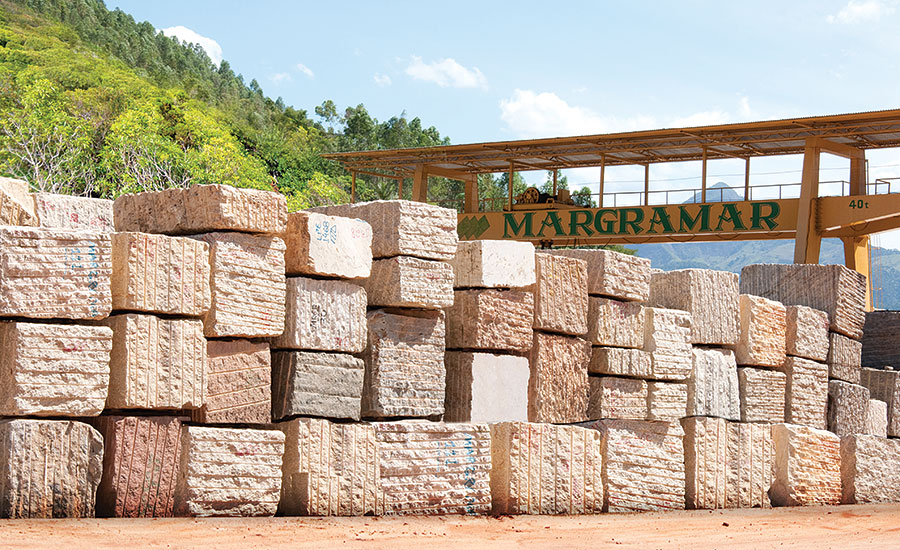Uncovering the Rich History and Lasting Practices of Granite Quarrying
As we depend on the precipice of discovering the elaborate tapestry of granite quarrying, a trip via time discloses not just the physical act of removing rock yet likewise the social and historical significance woven right into the extremely fabric of this method. From the ancient beginnings that laid the foundation for modern quarrying strategies to the lasting practices that are shaping the future of this sector, each chisel mark on granite surface areas narrates waiting to be unearthed (granite quarries in south africa). The legacy of granite quarrying stretches much beyond plain extraction; it is a testament to human resourcefulness, resilience, and the enduring attraction of this magnificent rock
Old Beginnings of Granite Quarrying
Going back to old worlds, the method of quarrying granite has actually been an important part of human history and building advancement. The earliest evidence of granite quarrying dates back to old Egypt, where huge pyramids and intricate sculptures were crafted from this long lasting stone. The Egyptians utilized primitive devices to extract granite blocks from quarries, showcasing the significance of this material in their monumental building and constructions.
Moving onward in history, the Greeks also made considerable payments to the quarrying of granite. The Greeks utilized granite in different architectural wonders, such as holy places and statuaries, showing their skill in shaping and carving this durable rock. The Romans further improved the techniques of quarrying granite, employing advanced tools like knives and hammers to extract and shape granite for their famous frameworks.
With the centuries, the method of quarrying granite has advanced, with modern innovations enhancing efficiency while keeping the ageless charm of this natural stone - granite quarries in south africa. From old human beings to modern building contractors, the legacy of granite quarrying proceeds to shape our globe
Development of Quarrying Strategies
The evolution of quarrying techniques has actually been marked by a continual development in the direction of higher efficiency and precision in drawing out granite. Early quarrying methods involved hand-operated labor with fundamental devices such as blades, hammers, and wedges to remove granite blocks from the planet.
Innovations in computer-controlled equipment and 3D modeling have actually maximized quarrying procedures, leading to marginal environmental impact and enhanced sustainability techniques. As the demand for granite continues to rise, the evolution of quarrying strategies continues to be essential to conference sector needs effectively and sustainably.
Social Importance of Granite
Granite holds an extensive social value throughout numerous people as a result of its long-lasting presence in building work of arts and respected monuments. From the stunning pyramids of Egypt to the elaborate makings of the Angkor Wat holy place in Cambodia, granite has actually been a material of option for revealing majesty and longevity in cultural heritage. In old Rome, granite columns adorned temples and public buildings, signifying strength and durability. The social importance of granite expands past its physical qualities; it personifies durability, stability, and timelessness, making it a sign of enduring legacies and customs.

Sustainable Practices in Quarrying
In the middle of the abundant background of granite quarrying and its social value exists a growing focus on sustainable practices within the industry. As environmental understanding and worries regarding resource depletion have actually enhanced internationally, the quarrying market has actually increasingly welcomed sustainable techniques to minimize its effect on the environment and surrounding areas.

Furthermore, reclamation and rehabilitation of quarry sites post-extraction are essential to lasting methods. By bring back quarried locations to an all-natural or beneficial state, such as creating wild animals environments or recreational areas, quarriers can offset the environmental footprint of their operations and contribute positively to the local ecosystem.
Legacy of Granite Quarrying
With a historical background steeped in workmanship and industrial progress, what sustaining influence has granite quarrying left on the landscape of contemporary society? The legacy of granite quarrying goes beyond mere extraction methods; it has formed architectural wonders, urban landscapes, and cultural heritage worldwide. The resilient nature of granite has made it a preferred choice for monuments, buildings, and framework, standing as a testament to the skill and virtuosity of quarry discover here employees across generations.
Moreover, the financial footprint of granite quarrying can not be forgotten. The market remains to give work chances and drive regional economies in areas where granite extraction is prevalent. It has actually also stimulated technological developments in quarrying strategies and devices, resulting in extra effective and sustainable practices.
In regards to sustainability, the legacy of granite quarrying consists of initiatives to reduce environmental influences with recovery projects and accountable source monitoring. By balancing economic passions with ecological stewardship, the industry aims to make certain that future generations can remain to gain from this enduring natural deposit.
Final Thought

Comments on “The Covert Treasures: Exploring Granite Quarries in South Africa”